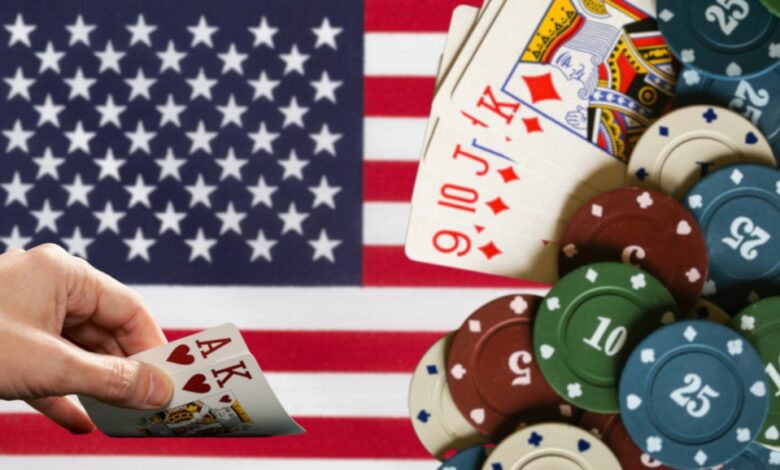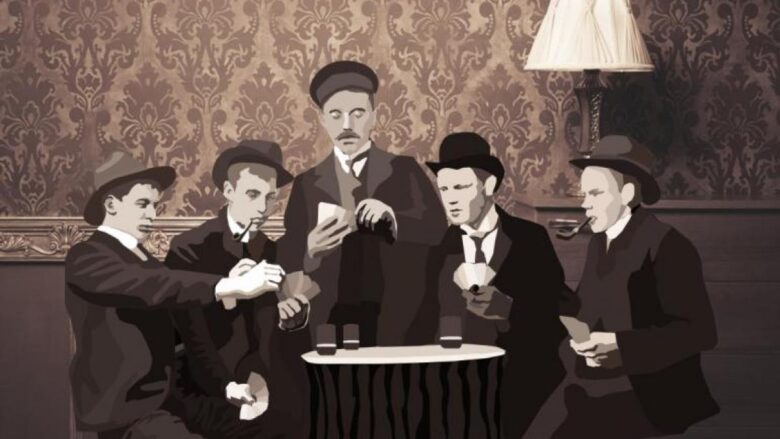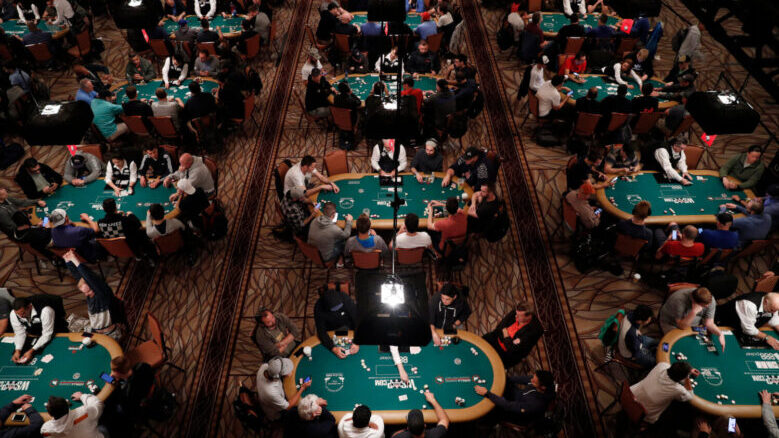Is The US Still The Hub Of Poker?

Have you ever wondered where the magic of poker began? Believe it or not there was once a world where Cowboy hats, saloons, and riverboat gamblers are among the pioneers of America’s favorite card game! Poker had a modest 1800s beginning and developed to be the events held in neon-lit rooms today.
Interestingly, the US has not only witnessed but shaped poker’s meteoric rise on the global stage. But here’s the real question: with all its glitz, glamor, and history, does America still hold the title of the world’s poker capital? This article examines whether the US is still the card game hub. Let’s dive in!
The History of Poker in the US

Now, there’s some mystery about where and how it all started. But hey, what’s a good story without a little intrigue, right?
Historians enthusiastic about the game claim that the earliest versions were probably played somewhere in the Mississippi River region in the 19th century. From there, the game continued evolving, borrowing bits and pieces from various European card games. The rules and structure we know today were shaped during this time.
Fast forward to the wild, wild 1800s, and poker was the talk of the town (or should we say, the talk of the Wild West?).
The game became the new favorite pastime for cowboys and gamblers. Additionally, saloons and riverboats turned into the hottest card game spots in town. At this moment in time the gambling culture in the US was alive and thriving.
But the tale of poker in the US doesn’t stop there. As America grew and changed, so did the game. For instance, during the 1930s, gambling became legal in Nevada, turning the desert into a lush oasis for game rooms and casinos. The game became so popular in the region that it attracted players from every corner of the country, and the world.
Poker’s Popularity Decline
Our beloved card game hasn’t had it easy, folks! Legal restrictions on gambling during the early 20th century caused significant disruption to poker rooms and casinos all over the US.
And just when the game found its footing in the digital world, the Unlawful Internet Gambling Enforcement Act of 2006 came along, making online poker a tough game to play. But hey, every good story has its challenges, right?
Online Poker Boom and Bust
Online poker became very popular in the late 90s and early 2000s. During this era, numerous platforms emerged, which attracted players worldwide. Nevertheless, the surge didn’t last long due to regulatory problems and the infamous “Black Friday” event in 2011, which resulted in a significant drop.
The Resurgence of Poker in the US

So, poker faced some bumps in the road, but guess what? The game made a roaring comeback in the US! A lot of the credit goes to television. When shows like the World Poker Tour and the WSOP added the “hole cam,” it was a game-changer.
Suddenly, viewers could sneak a peek at players’ hidden cards, and the excitement went through the roof! Plus, there were folks championing poker, making a solid case that it’s more about skill than just luck. This perspective gave the game a bit of a break, keeping it clear of some pesky gambling restrictions.
Poker Tournaments and Events in the US
Poker tournaments and events are at the core of the US scene. These events, which range from competitive local tournaments to high-stakes championships, attract top players from all over the world. Renowned poker players display their strategies and skills on this stage, vying for the cash prizes and the sweet taste of fame and glory.
Some of the trendiest tournaments and events in the US include the following:
World Series of Poker (WSOP)

The WSOP is undoubtedly the biggest poker event globally. It brings together players from all walks of life to battle it out for the coveted gold bracelets and life-changing cash prizes. Also, WSOP offers multiple variants to cater to every player’s taste.
World Poker Tour (WPT)
This is another popular series in the US that offers multiple high-stakes tournaments. The tournament holds its events at different venues all over the US. Moreover, like the famous WSOP, a WPT title earns the winner bragging rights in the poker world. It’s a big-time achievement that players dream of!
Heartland Poker Tour (HPT)

If you find the big tournaments unaffordable, this is the ideal tournament for you. It focuses on local tournaments, allowing players from all over the states to join. Plus, they run the games professionally, and the prize money is pretty impressive!
World Poker Classic at the Commerce Casino
The Commerce Casino in Los Angeles usually throws this exceptional event dubbed the World Poker Classic. The tournament attracts players from all over the country. Players can also enjoy multiple variants including Texas Hold’em, Omaha, Seven-Card Stud, and more. It’s a cool way for players to test the versatility of their skills!
The Appeal of Poker in the US
You can attribute the famous card game enduring popularity in the US to the following factors:
Social Aspect and Community
Poker games and tournaments bring players and fans together. These events also promote friendship and camaraderie among its participants. Moreover, home games, local clubs, and sites like LegalUsPokerSites.com help to create a strong sense of community.
The Thrill of Competition

the games competitive nature makes it appealing to individuals who enjoy challenges. Such individuals watch or play the game to quench their thirst for the adrenaline rush of strategic gameplay.
Media Exposure
Nowadays, television broadcasts feature prestigious tournaments like the WSOP. This has helped bring the excitement and strategy of the game into millions of American households. Additionally, it has made the game more accessible and captivating.
Celebrity Influence
Many celebrities and prominent figures usually participate in the game events. Their participation has helped raise the game’s profile making it attractive to fans who want to emulate their favorite stars.
Conclusion
Poker has had quite the ride in the US, hasn’t it? From its Wild West beginnings, it’s always been a big part of American culture. Also, with tech innovations and more states passing friendlier legislation, the game’s future looks promising.



